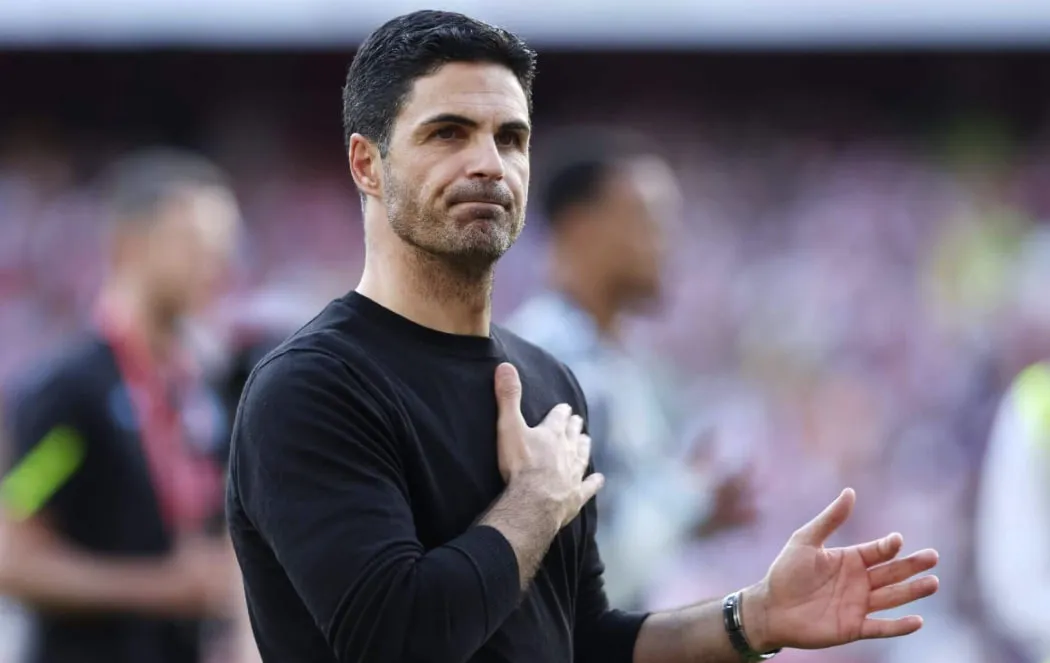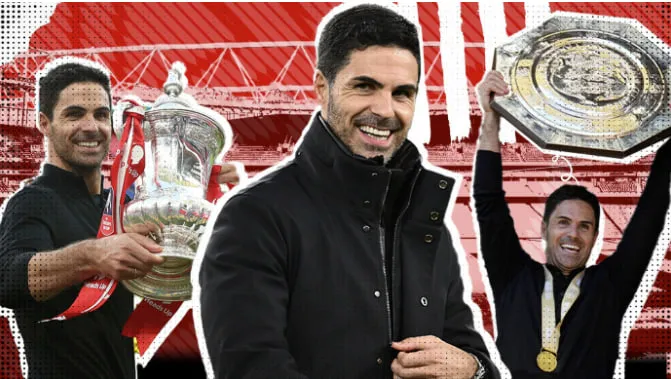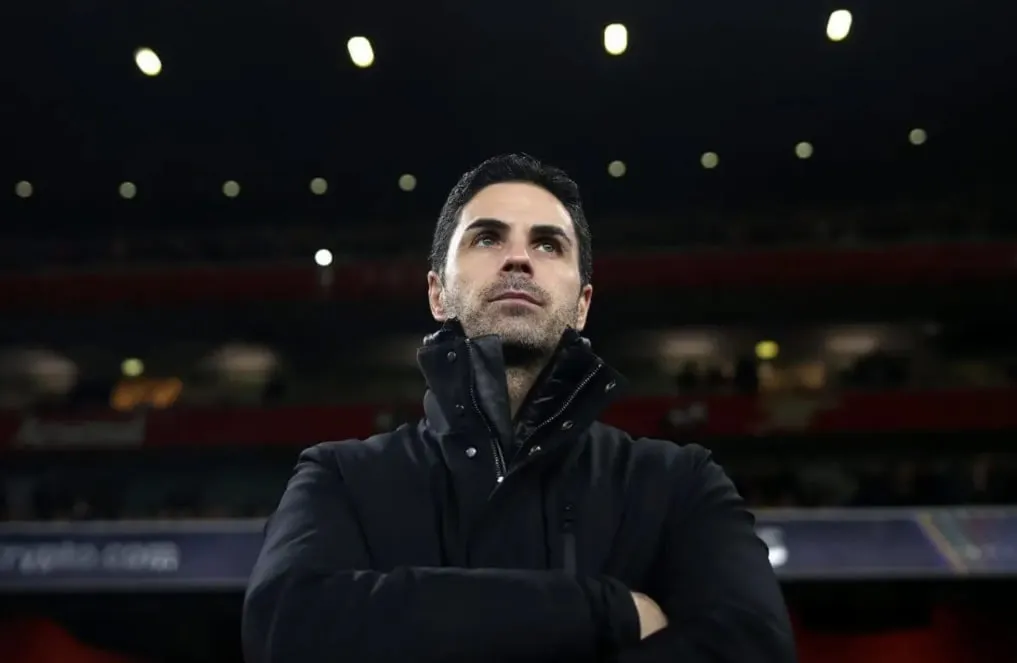The burning question surrounding Arsenal Football Club has shifted from “Can they compete?” to “Can they finally win?” When Mikel Arteta put pen to paper on his new contract, the objective was unequivocal: victory. The ambition to build a dynasty is clear, but the reality is a growing collection of near-misses that echoes a familiar, frustrating narrative for the Gunners faithful.
Mikel Arteta watches on as his Arsenal side face another tough European night.
The recent Champions League exit at the hands of PSG was a bitter pill to swallow, a defeat that felt particularly cruel given the fine margins. This has led many to draw parallels with another recent, trophy-less project: Mauricio Pochettino’s exciting but ultimately silverware-starved Tottenham Hotspur. The fear is palpable—could this talented, attractive Arsenal side be remembered for what they didn’t win, rather than what they did?
A Season Defined by the Treatment Room
Any fair assessment of Arsenal’s campaign must begin with a stark statistic: a league-high 27 separate injuries. This isn’t just a minor inconvenience; it’s a crisis that has fundamentally shaped their season. To put it into perspective, that’s nearly double the number of injuries suffered by champions Liverpool and a significant outlier for a team finishing in the upper echelons of the table.
As Arteta himself pointed out ahead of the PSG second leg, the sidelines told a devastating story. He listed a full starting XI of quality players who have spent significant time unavailable. The absence of a consistent, clinical number nine has been a theme since the start of last year, a void that became a chasm as the season reached its critical point.

Despite this, Arsenal’s resilience cannot be questioned. While other clubs with similar injury woes, like Manchester United and Tottenham, languished in the bottom half, the Gunners remained Liverpool’s closest challengers and reached the semi-finals in two competitions. As football analyst Mark Taylor notes for Mcw casino, “To maintain a title challenge and a deep European run with that many key players missing is a testament to the squad’s depth and Arteta’s system. But systems don’t win trophies; decisive moments do.”
The Fine Margins of Elite Football
The PSG defeat was a masterclass in how cruel football can be at the highest level. Over two legs, Arsenal created chances worth a combined 4.8 expected goals (xG) but managed to score just once. Conversely, the first two goals they conceded—from Ousmane Dembele and Fabian Ruiz—had xG values of just 0.04 each. These are the minuscule margins that separate triumph from heartbreak in the Champions League semi-finals.
This statistical imbalance points directly to the club’s most pressing need: a ruthless, prolific striker. The last time Arsenal invested significantly in a number nine, the effect was transformative. Gabriel Jesus’s arrival didn’t just bring goals; it elevated the entire attacking unit, with Martin Odegaard, Gabriel Martinelli, and Bukayo Saka all posting career-best numbers that season. A similar catalyst is now desperately required.
The Crossroads Summer: Transfers and Contracts
This summer represents the most critical period of the Arteta project. The club is reportedly armed with a substantial transfer war chest, and how it is spent will define the next five years. New sporting director Andrea Berta, who masterminded Atletico Madrid’s rise, brings a proven track record of identifying game-changing talent, particularly in attack. His appointment could be the key strategic shift needed to break the cycle.
However, incoming transfers are only half the battle. Priority number two is securing the future of the existing core. The contracts of Bukayo Saka, William Saliba, and Gabriel Magalhaes—the undeniable spine of the team—expire in just two years. The longer these deals remain unextended, the louder the speculation will grow, potentially destabilizing the project. They must be convinced that the promised dynasty is imminent.

The clock is ticking for Arteta. The FA Cup win feels a lifetime ago, and the “five-step plan” is now in its final phase. The project has been built, the style of play is implemented, and the team is consistently competitive. The only thing missing is the tangible reward that confirms their progress.
Can Mikel Arteta’s Arsenal Avoid Becoming the Next Nearly Men?
The answer is still within their grasp. This is not a team that needs a overhaul; it needs augmentation. A prolific striker, continued fitness for key players, and the retention of their world-class talent are the three pillars for success next season. The foundations laid by Arteta are strong, but foundations alone don’t win trophies. The summer ahead requires ruthlessness in the transfer market and conviction in the boardroom to ensure this project culminates in the glory it deserves, not the “what if” stories of a nearly team.
What do you think is the single most important thing Arsenal must do this summer to get over the line? Share your thoughts with the Mcw casino community below.

